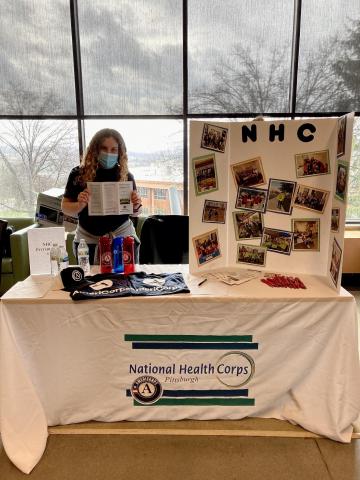Over the course of the last several months, I have had the privilege of serving at Pittsburgh Mercy Family Health Center, a patient-centered primary care office embedded in a larger behavioral health campus. Because a substantial portion of the patients receiving services at the health center are struggling with severe mental illnesses, homelessness, and co-occurring substance use disorders, one of my main responsibilities as a National Health Corps member is to help out with the weekly Medication Assisted Treatment (MAT) clinic on Tuesdays. Generally speaking, MAT programs are used to treat opioid use disorders and help people maintain recovery once they are stabilized. Medications like Suboxone and Subutex are used in combination with psychiatric counseling to curb withdrawal symptoms and cravings.
Though there are many different approaches to medical and psychiatric care, the Pittsburgh Mercy Family Health Center providers involved with the MAT program are all guided by harm reduction principles and strategies. In turn, I have learned a lot about substance use disorders and about the harm reduction perspective myself. I now understand that abstinence may not be a realistic goal for everybody and that drug use is often times a complex and multifaceted issue for people. I also see that recovery is not always a linear or consistent process. People’s motivation to maintain abstinence can ebb and flow, and relapses can occur as well. But the beautiful thing about harm reduction is that no matter where people are in their recovery journey, all patients receive quality and individualized health care. Simply put, providers are focused on meeting their patients where they are at and are united in trying to reduce drug-related morbidity and mortality. Success is no longer tied to the notion of complete abstinence. Instead, it is broadly defined as minimizing harm.
Overall, I sincerely hope that more physical and mental health care providers start adopting a harm reduction perspective, especially because we live in a country plagued by a worsening opioid crisis. If harm reduction interventions were to become the norm, I strongly believe this would help guarantee that our nation’s health system remains inclusive and respectful of all.

